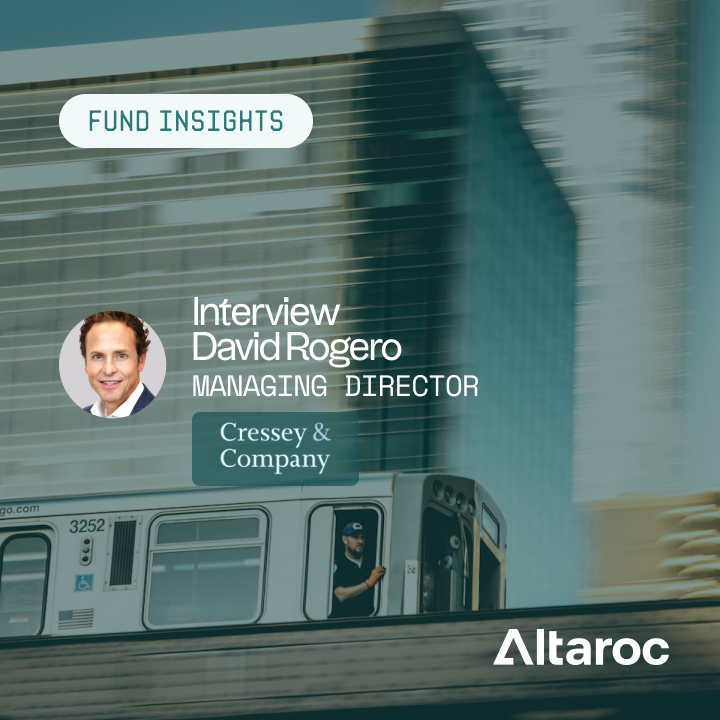
Interview - Michel Ruimy is an economist, consultant and strategy advisor to CAC 40 companies and international organizations. Author of numerous books and articles on economic, financial and societal issues, he teaches at world-renowned national and international institutions (Sciences-Po Paris, ESCP Europe, etc.).
From an international perspective, what are the growth prospects for the healthcare sector?
Michel Ruimy: The world's population is consuming more and more "healthcare", not least because of a growing awareness of the importance of disease prevention and wellness promotion. Personalized medicine, which involves diagnosis and treatment based on individual genetic characteristics, is booming, and fitness monitoring devices, nutrition tracking apps, fitness programs... are multiplying. Areas such as artificial intelligence, telemedicine and the Internet of Things are revolutionizing healthcare by improving diagnosis, treatment and disease management.
This demand has been driven for years by the world's growing and ageing population, the gradual prevalence of lifestyle-related chronic diseases, as well as by ever-increasing access to basic healthcare and the need for medical infrastructure in emerging countries (deep-seated structural factors). At the same time, medical tourism is booming: more and more patients are going to countries offering healthcare services, modern infrastructures and advanced medical procedures to receive quality medical care at affordable costs.
On the supply side, pharmaceutical companies (including generics companies), biotechs, medtechs and services (clinic networks, companies supplying software for pharmacies, etc.), although correlated, are sufficiently diversified that the sector does not have to suffer too much from stock price volatility.
Finally, healthcare remains a market that tends to outperform others, thanks in particular to small- and mid-cap companies. Geographic diversification also plays an important role, with Asia and the United States remaining the most important markets, both in terms of consumption potential and investment opportunities.
Even so, while the healthcare sector accounts for almost 10% of global GDP - some 20 times more than the luxury goods sector - it is faced with rising healthcare costs, complex regulations, skilled labor shortages and the challenges of protecting medical data. As each country has its own specific characteristics, growth prospects may vary from one country to another, but overall, the sector continues to present growth opportunities.
Thanks to artificial intelligence, are sub-sectors emerging in the healthcare sector, creating new investment opportunities?
Michel Ruimy: The healthcare analytics market is segmented by technology type (predictive analytics, prescriptive analytics and descriptive analytics), by application (clinical data analytics, financial data analytics and administrative data analytics), by product (hardware, software and service), by delivery mode (on-premise and cloud-based models), by end-user (healthcare provider, pharmaceutical industry, biotech industry and academic organization) and geographically (North America, Europe, Asia-Pacific, Middle East and Africa, and South America). Beyond this segmentation, artificial intelligence (AI) plays a key role in structuring sub-sectors, whether in medical diagnostics, precision medicine, digital health, patient monitoring or medical research.
In medical diagnostics, AI can improve the accuracy and efficiency of diagnosis by analyzing large quantities of data (medical images, genetic data, medical history). As a result, start-ups based on this technology have developed tools for early detection and diagnostic assistance (dermatology, radiology, etc.).
This technology also facilitates the personalization of medical treatments by analyzing patient data to predict their response to specific drugs or to identify predictive biomarkers for certain diseases.
Digital health apps and patient monitoring devices, installed on smartphones, also benefit from AI advances. AI-based chatbots and virtual assistants can provide medical advice and manage appointments. Patient tracking devices (wearables) can collect health data in real time, enabling healthcare professionals to monitor them remotely and detect potential problems.
Finally, AI contributes to medical research by accelerating the drug discovery process. It is used in the analysis of medical research data, including scientific articles, genomic databases and patient data.

From an economic point of view, how would you describe the healthcare sector? What returns (ROI) can be expected? Is it a resilient, acyclical sector?
Michel Ruimy: Healthcare is a fundamental need for every individual. As a result, its market is an essential, even crucial, sector of the economy. Despite strict regulations designed to guarantee patient safety, quality of care and medical ethics, it is growing steadily, and more specifically, for healthcare products and services whose expansion is solid and sustainable, this creates new investment opportunities.
However, ROI in the healthcare sector can vary considerably depending on regulatory developments, the type of investment, the nature of the company or project, the development phase, market conditions and associated risks. Nevertheless, certain companies in the healthcare sector can offer potentially high returns, such as technology start-ups (beyond the start-up phase), pharmaceutical companies linked to advances in gene therapies, oncology, rare diseases... or even healthcare infrastructures (hospitals, clinics, long-term care centers, specialized healthcare facilities...), which are less risky investments and whose returns may therefore be more modest compared to other, more innovative sectors.
Although the healthcare sector as a whole can be considered relatively resilient and acyclical due to the ongoing demand for healthcare, some compartments can be more sensitive to economic cycles than others, such as expensive medical devices and elective medical procedures, which can be postponed during periods of economic slowdown, which can have a financial impact on some companies in the sector.
How can Private Equity help these cutting-edge companies (AIVF, Biofourmis, etc.)? They can consolidate their markets, create jobs...
Michel Ruimy: From biotechs to pharmaceuticals and medtechs, healthcare offers a wide range of economic activities and remains a buoyant theme, underpinned by solid fundamentals. The promising innovations that will be arriving on this growing market in the future will contribute to its dynamism. The state and public services will not be able to cover these expenses over the long term. The private sector will inevitably have to take up the slack.
In this context, Private Equity will play an important role in supporting the potential success of cutting-edge companies. Indeed, in addition to contributing to significant business financing, these investors often have extensive expertise and networks that they can mobilize, in particular by providing these companies with strategic advice and operational best practices and/or by facilitating partnerships, collaborations, business opportunities... In addition, they have often forged close relationships with other financial institutions (banks, venture capital funds, sovereign wealth funds, etc.), which can facilitate these firms' access to other sources of financing at the right time and/or help them raise additional funds as they grow.
As you can see, all these initiatives, present or potential, provide invaluable assistance to companies. They enable them to concentrate on their core business while benefiting from external management expertise.

How do you reconcile pressure on costs with ever-increasing needs?
Michel Ruimy: The sector is characterized by a regulated economy with a dual objective: to control costs by setting prices, and to organize the supply of care, mainly through marketing authorizations. For several years now, manufacturers have been faced with economic constraints and fierce global competition.
The "4 Ps" of medicine (predictive, preventive, personalized and participative) offer a wealth of opportunities for the industry's players... provided they work differently. It requires them to regularly rethink their position in the healthcare value chain, and to rapidly modernize their operations. This situation calls for the creation of a "care continuum" and, more broadly, a "health continuum" to anticipate risk behaviors and understand the personalized environment of a population or patient. It requires decompartmentalization between the players in the value chain and collaboration between professionals. It requires multi-disciplinary teams and the development of new skills. The continuum is also a "data continuum", because data, the new "black gold" of the economy, must be able to circulate and be exploited from one end of the value chain to the other, from use to research, to better target and adjust treatments and therapies, and to enrich research into healthcare products and epidemiology.
This pattern requires the porosity of boundaries between specialties, trades and skills, and induces collaboration between all players - in economic, legal and development models, etc. - which leads to a shift and sharing of value between players, the rules of which have yet to be invented and structured.
In this environment, reconciling cost pressures with ever-increasing needs is a complex and ongoing challenge. It seems to me that a balance can be achieved by rethinking care delivery models. Only the implementation of a comprehensive approach that takes into account the challenges faced by the various stakeholders (healthcare providers, insurers, pharmaceutical companies, patients) will enable us to reach a satisfactory consensus, under the leadership of the public authorities.
We see this with companies like Eating Recovery Center and Mentaal Beter (featured in the Vintage Altaroc Odyssey 2021), which care for patients with eating and psychological disorders. Finally, don't these impact companies play an essential role at a time when hospitals are saturated and the healthcare system in France, Europe and the rest of the world is also reaching its limits?
Michel Ruimy: Impact companies can't replace hospitals or the healthcare system.
They can, however, play an essential role in complementing the offer of existing structures through technological innovations (telemedicine, mobile health monitoring applications, electronic medical record management platforms...) which can improve the efficiency and accessibility of healthcare while helping to relieve hospital overcrowding. It may also involve the prevention of health problems, early detection, chronic disease management... all of which help to relieve pressure on hospitals by preventing health problems before they require hospitalization.
In another area, to improve the quality of healthcare and broaden the availability of qualified health professionals, these firms can, in collaboration with training institutes and public authorities, support the training and skills enhancement of medical teams, particularly in remote or underserved regions.
All these initiatives ultimately reduce healthcare costs while maintaining high quality standards. It is clear that a collaborative approach, which can include public-private partnerships, between impact companies, healthcare organizations and public authorities can foster a more resilient and efficient healthcare system.














